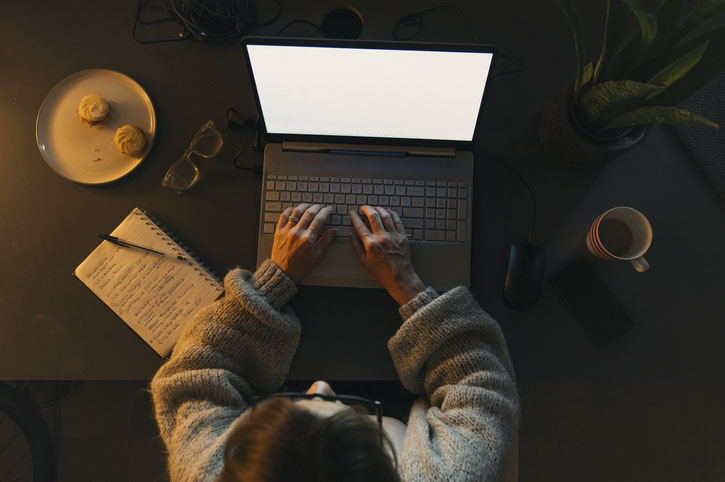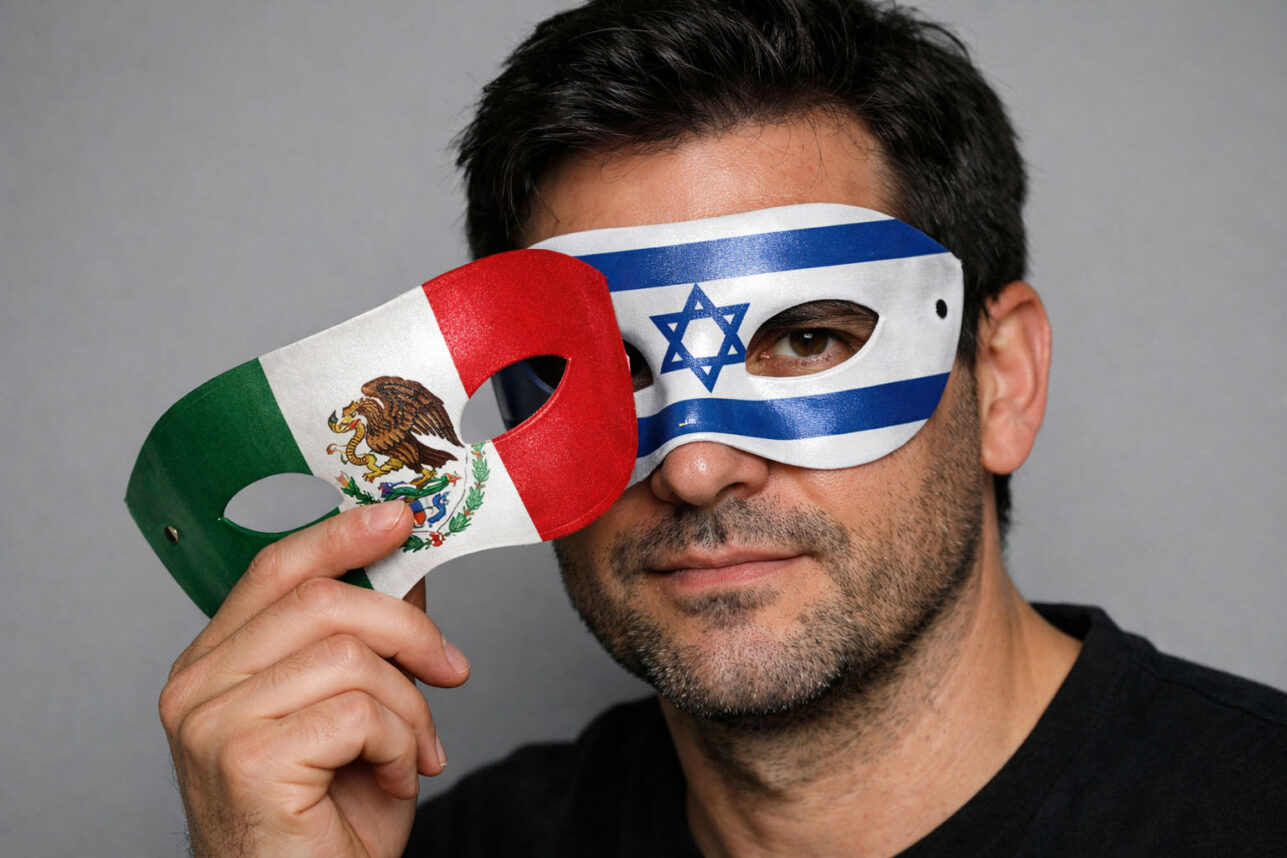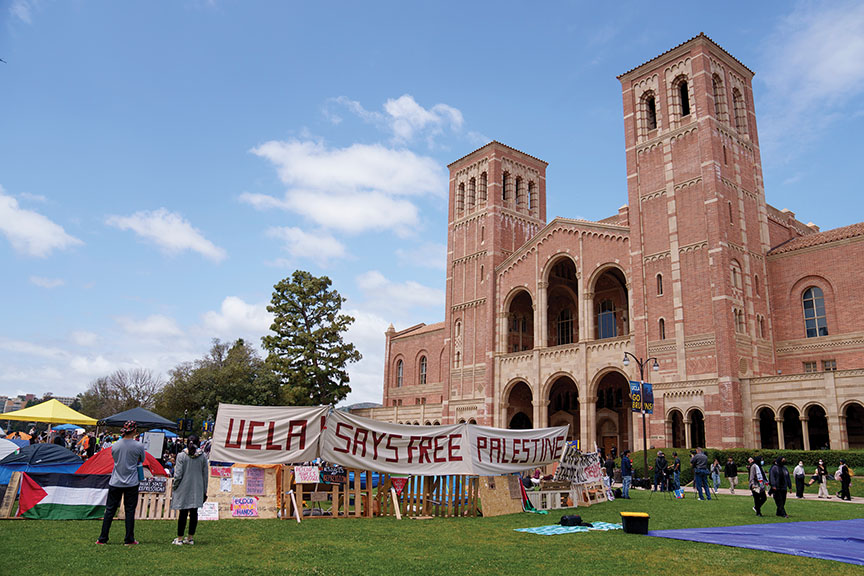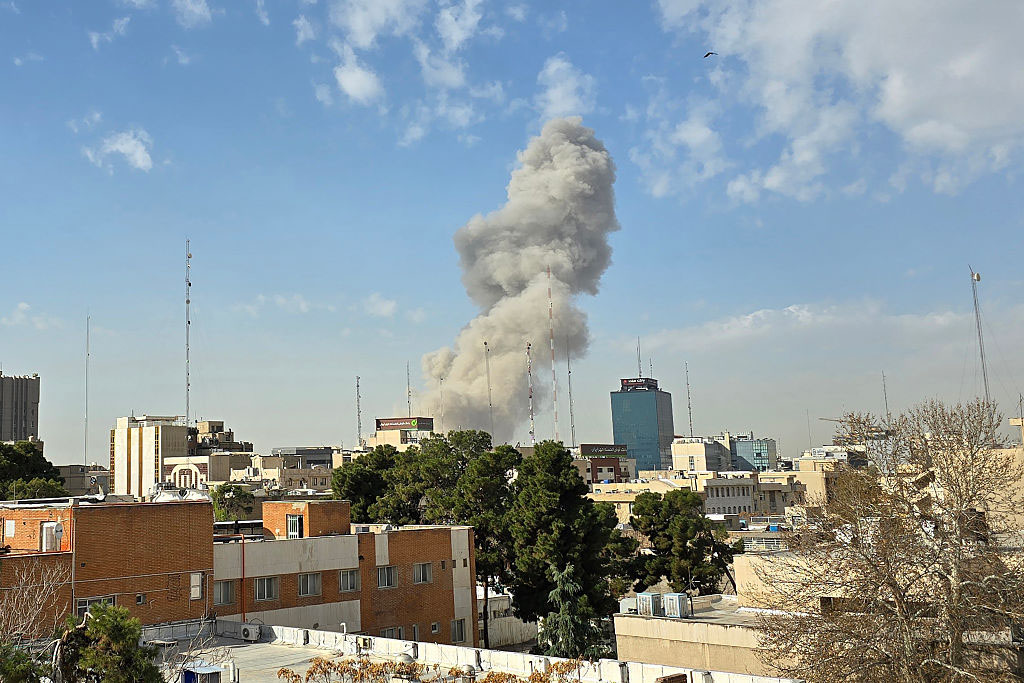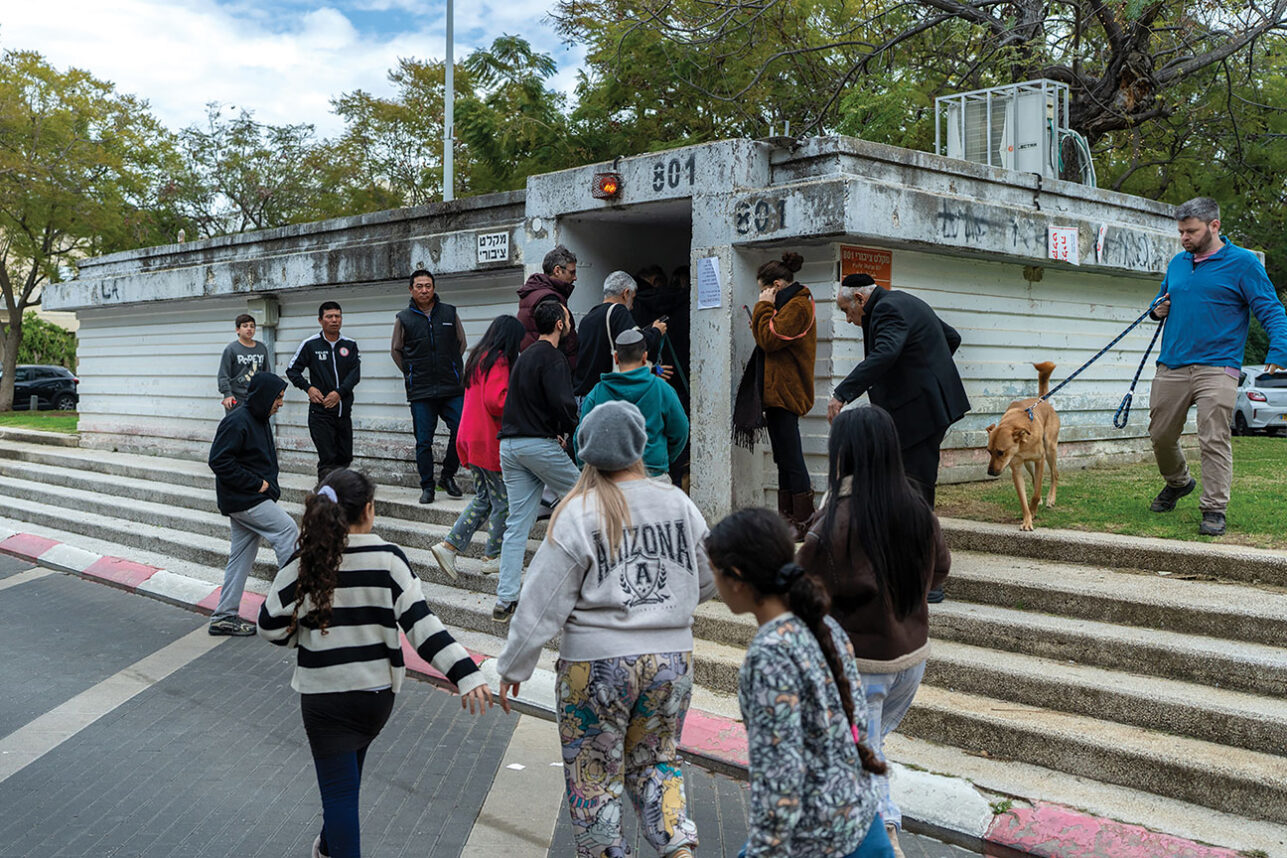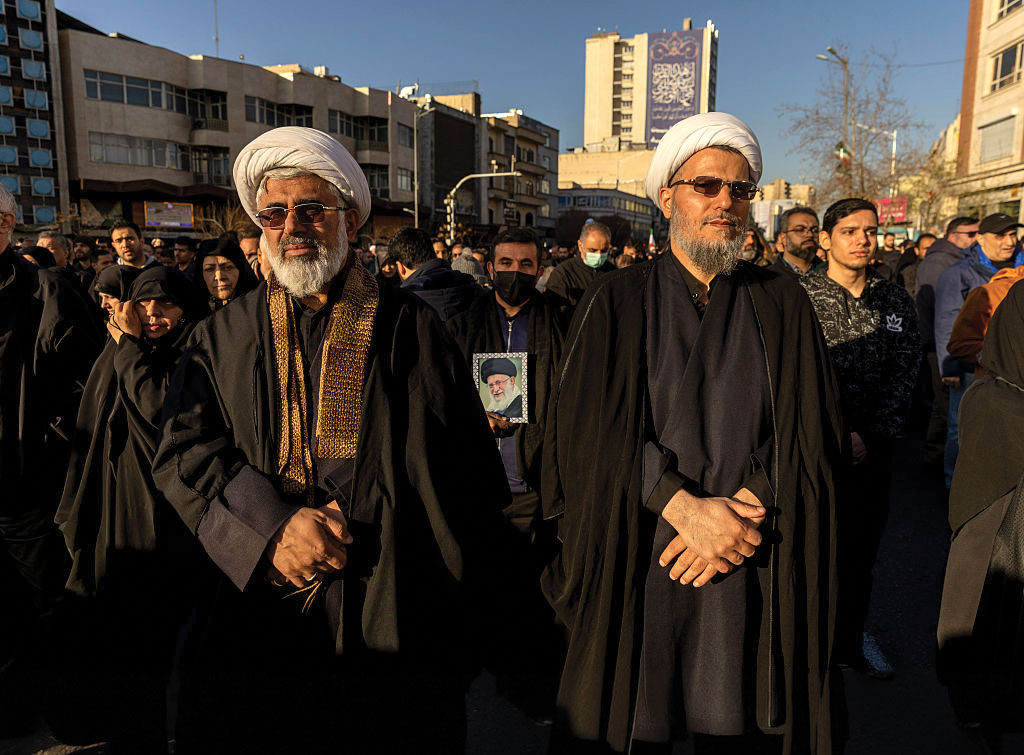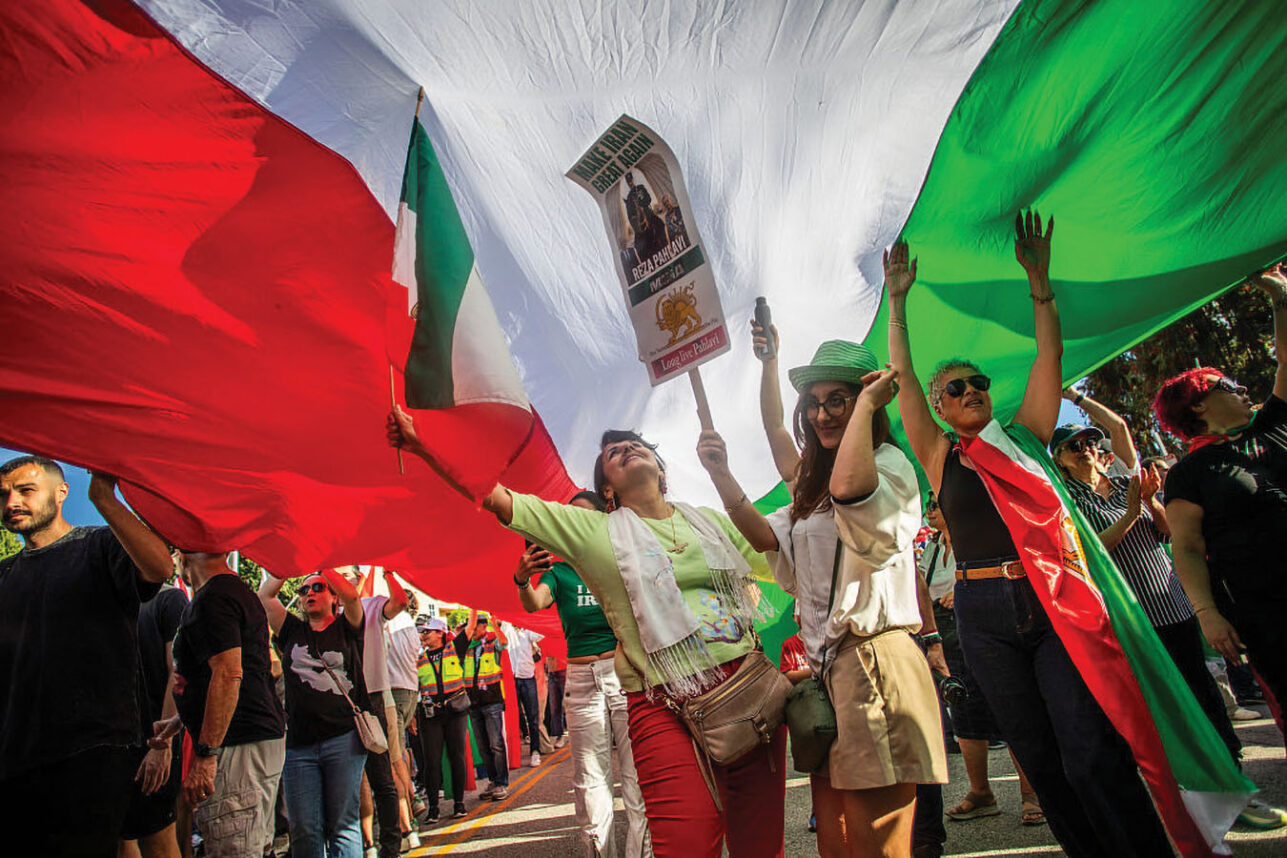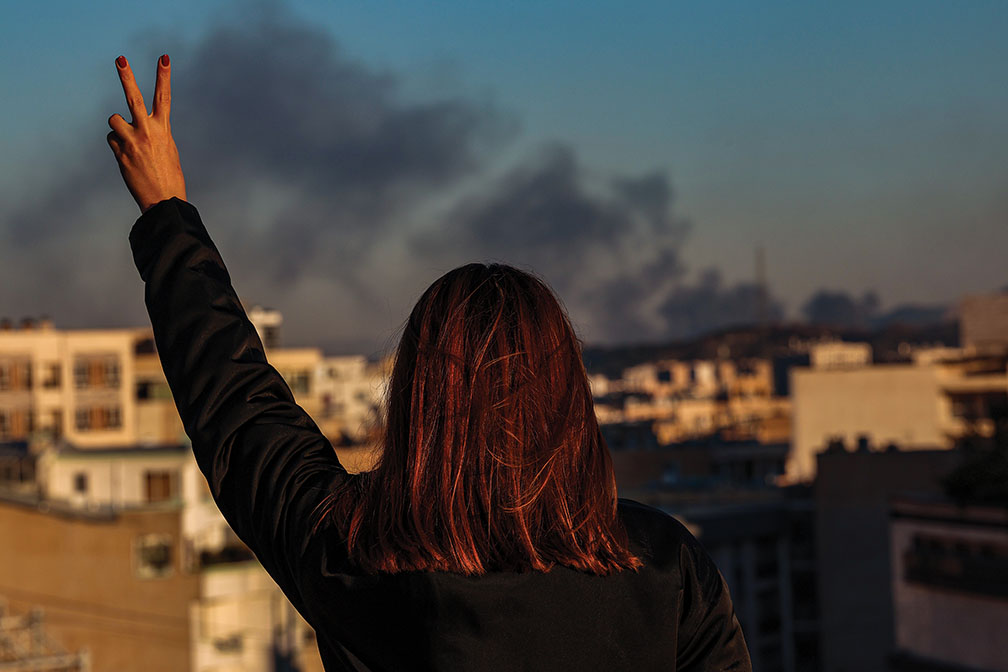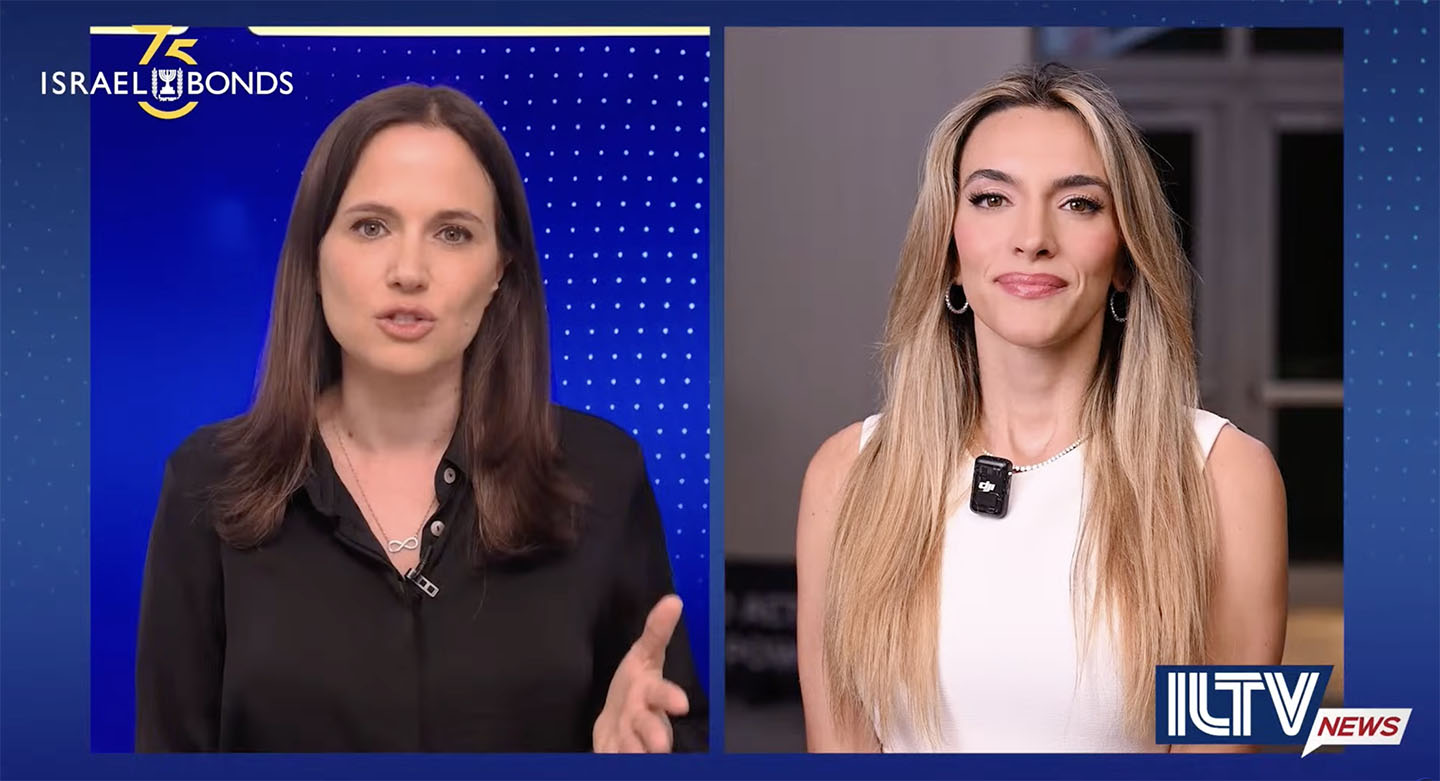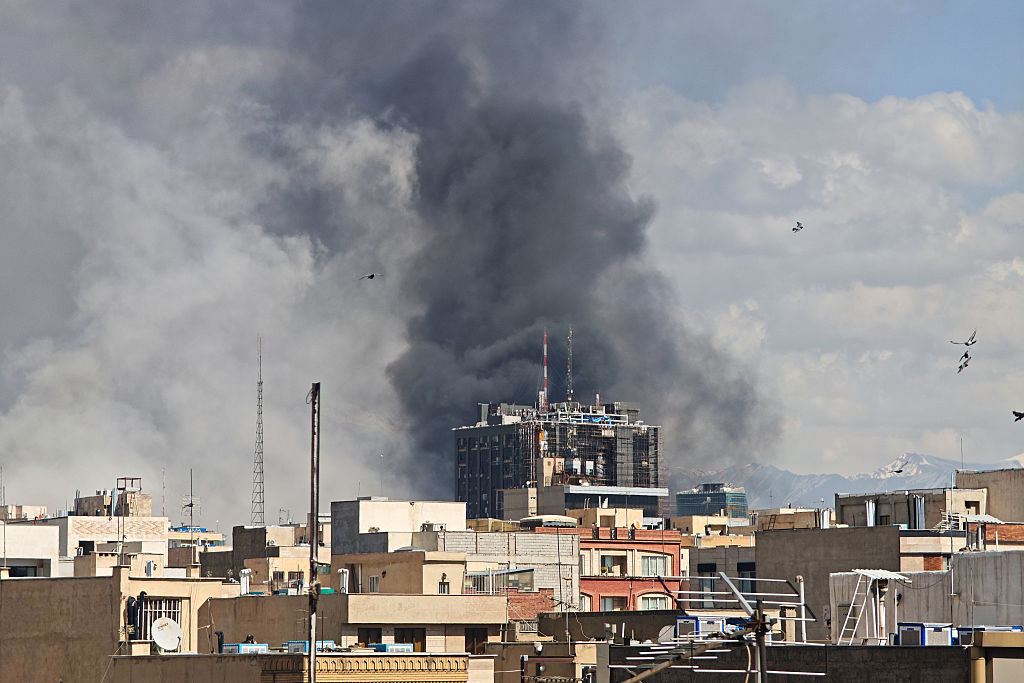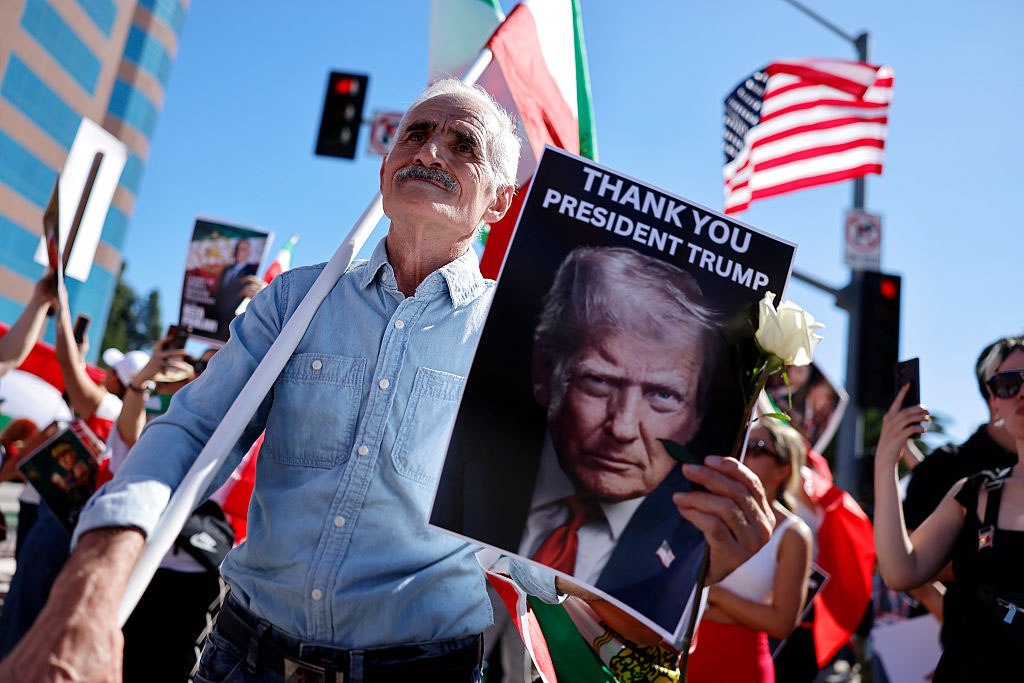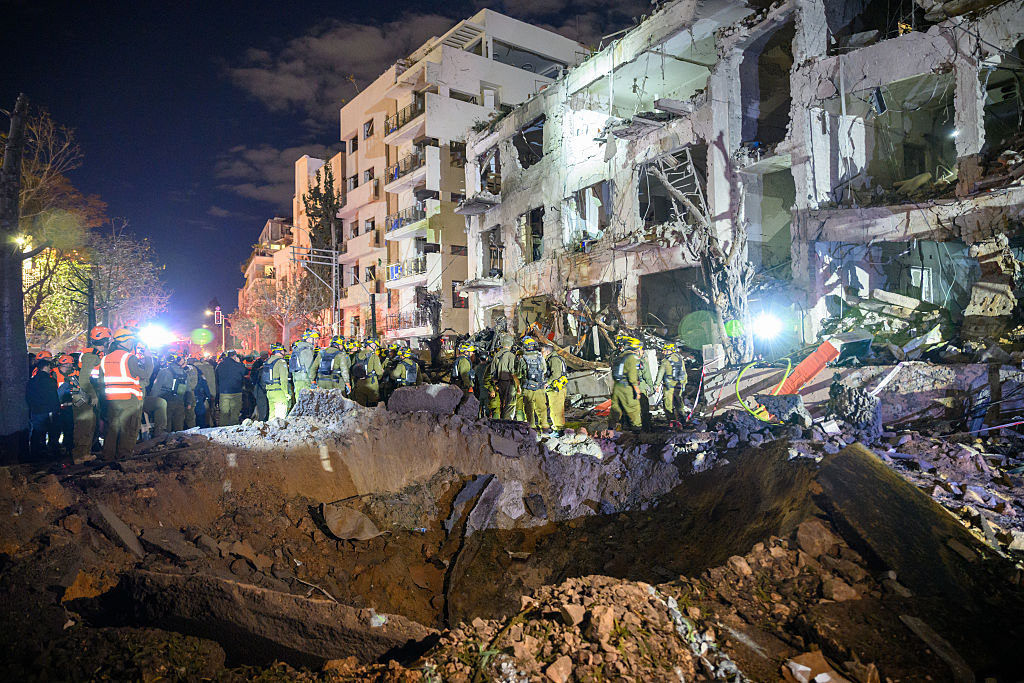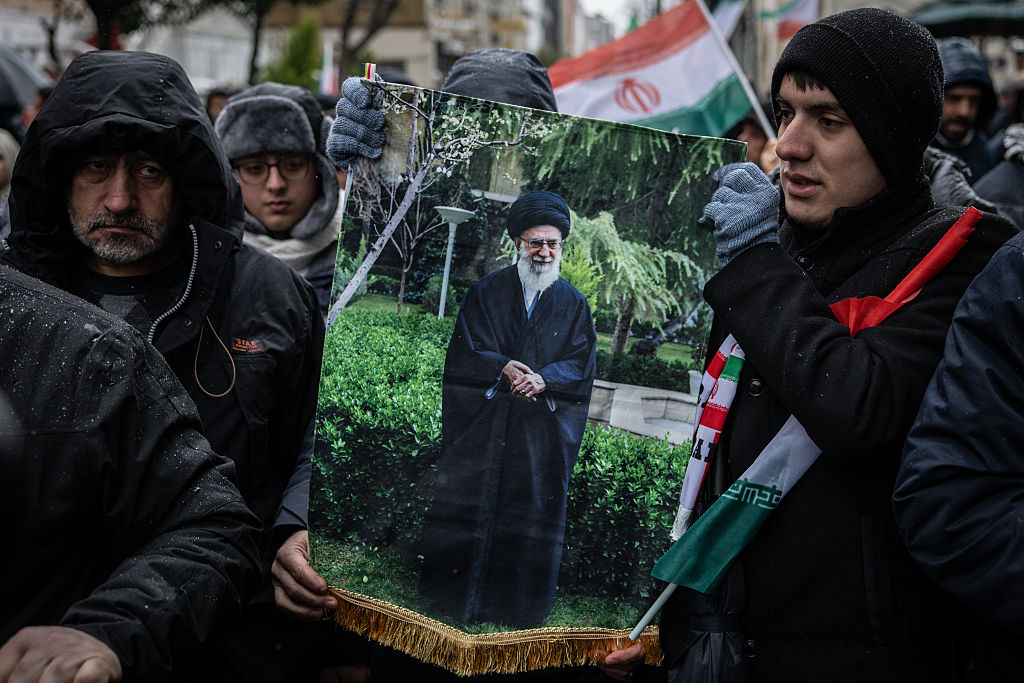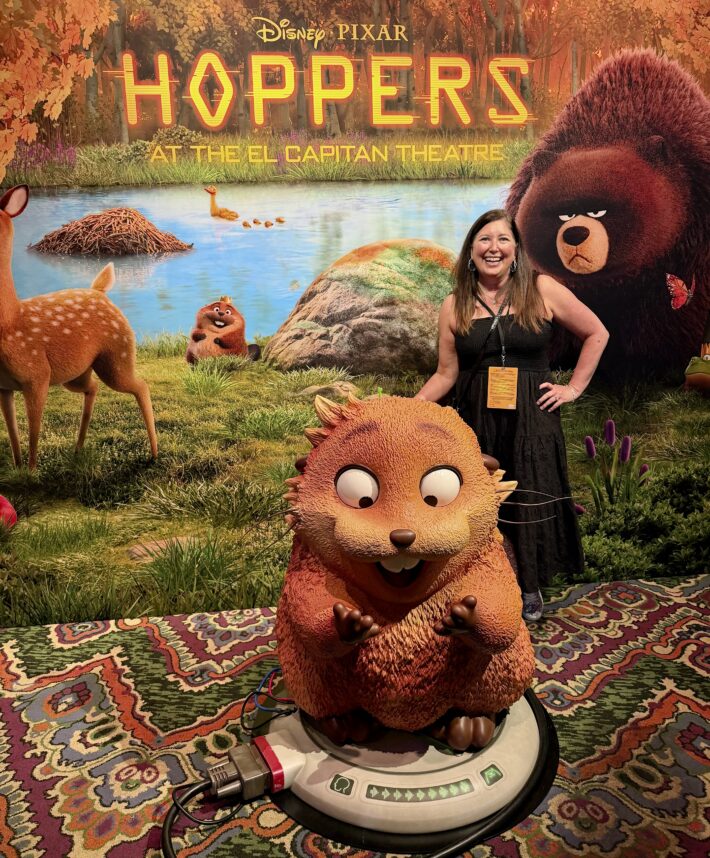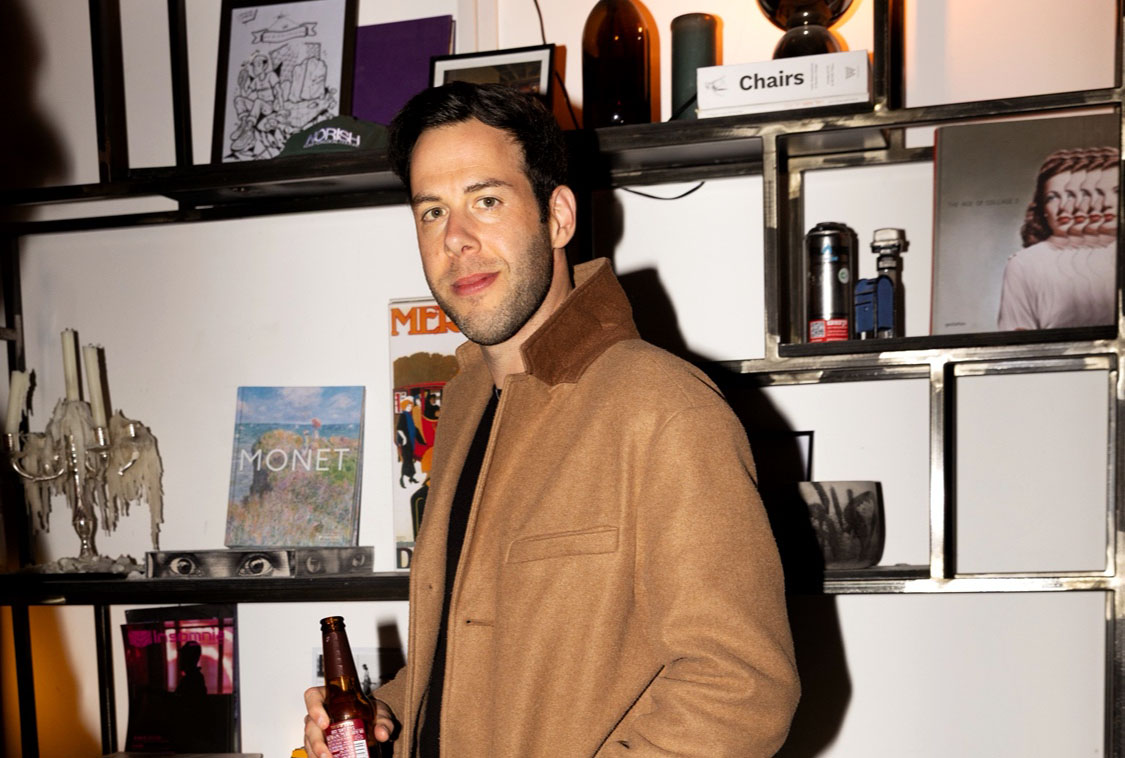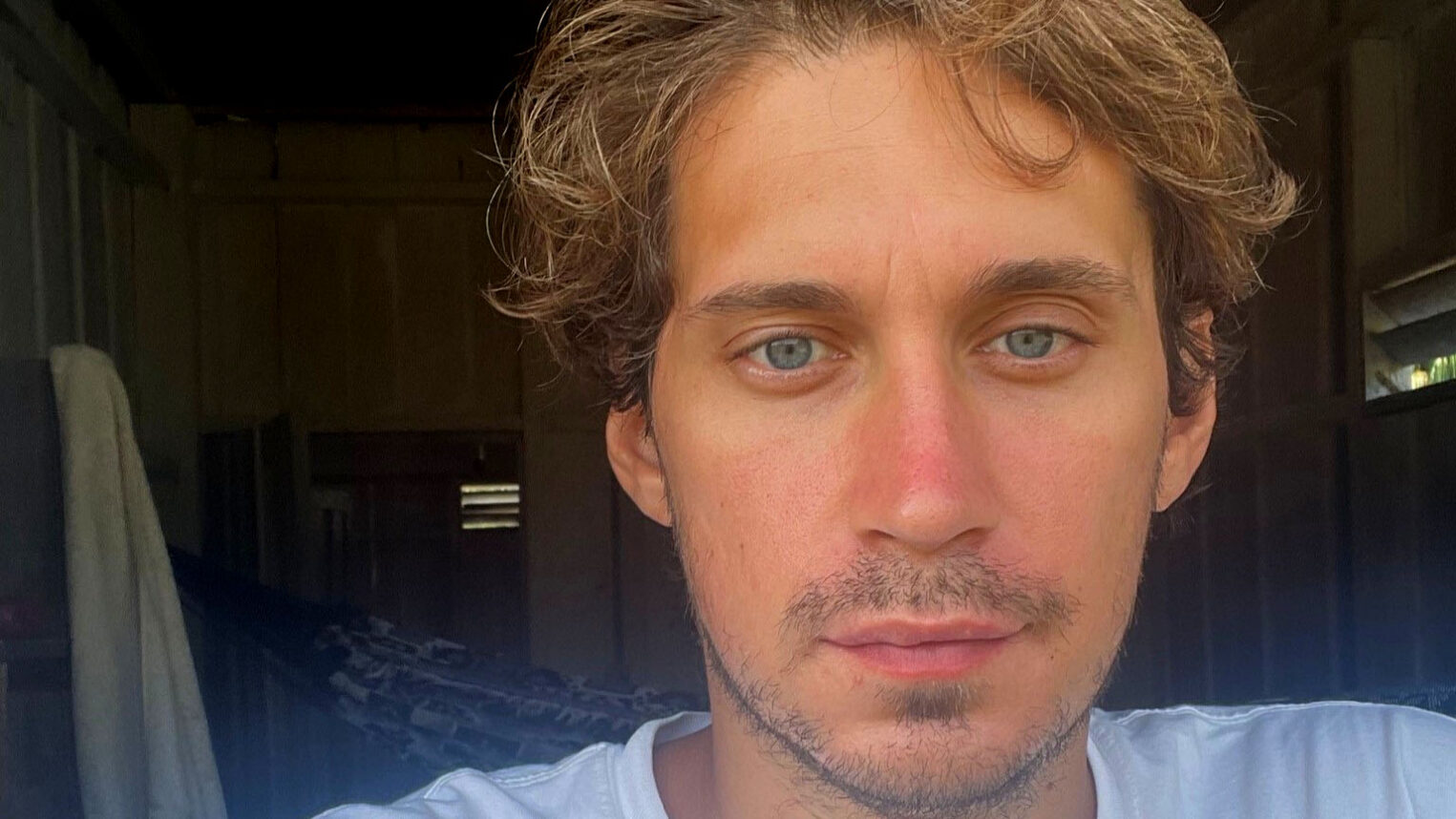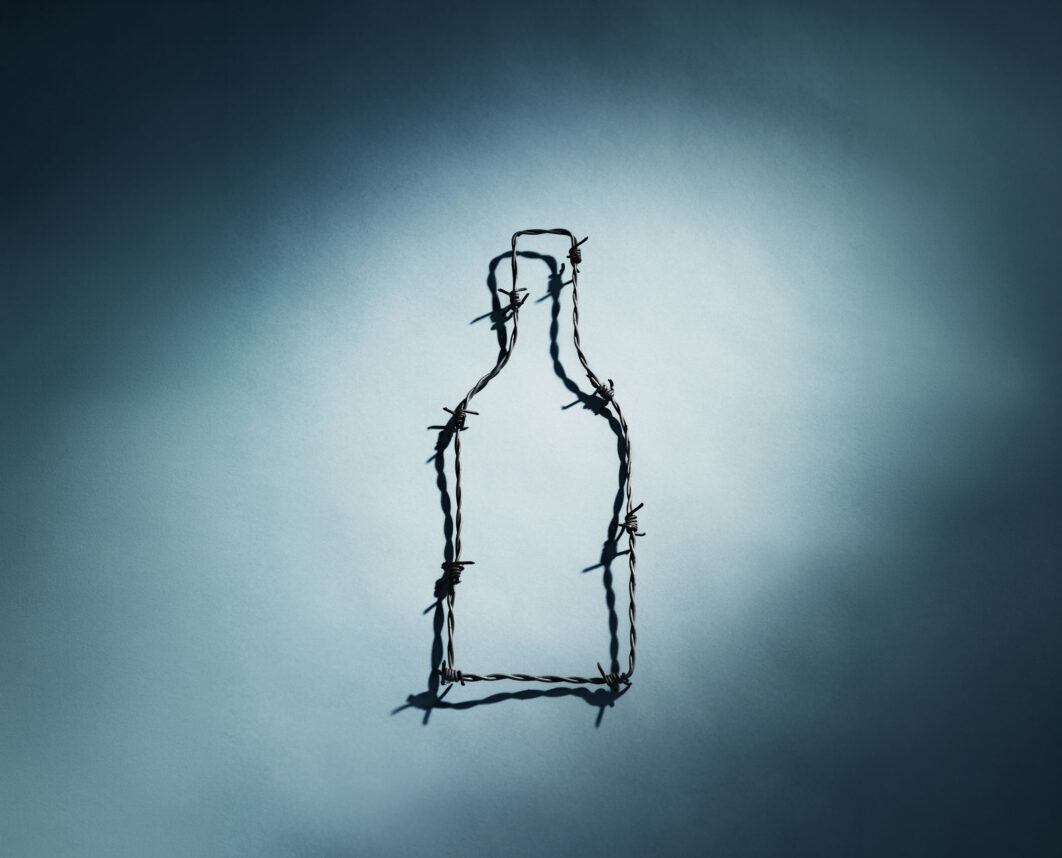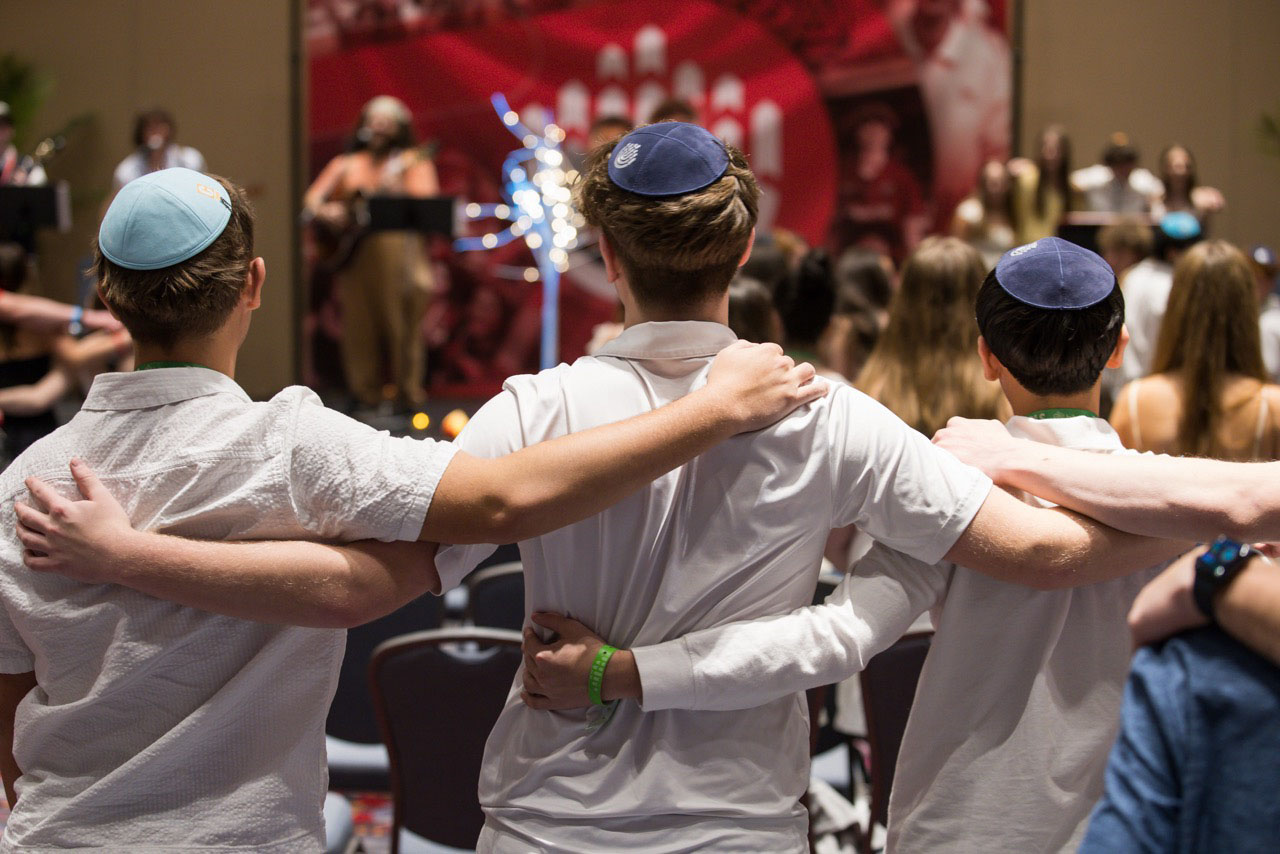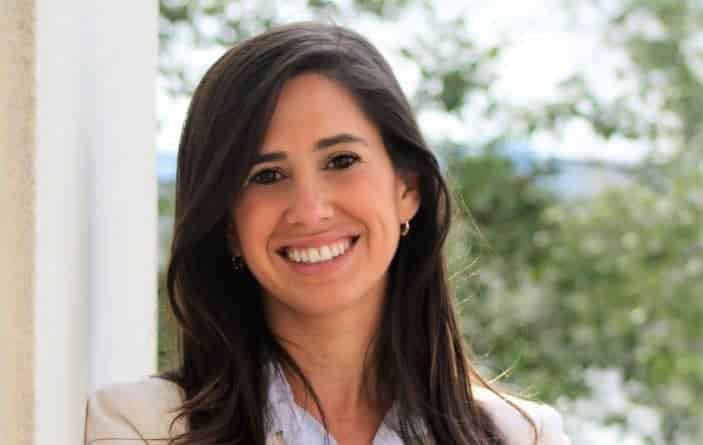
For over 40 years, the President of the United States has delegated a trusted person to be the official liaison to the Jewish community. In an interview with the Journal, the Biden Administration’s current liaison, Shelley Greenspan, describes her role as “serving as the administration’s voice to the community,” while also “tasked with gathering the community’s consensus viewpoint on issues affecting it.” She’s in tune with both the weight and the opportunity of her position: “I really have the immense privilege of seeing the American Jewish community live up to its values in a tangible way,” she says. “It’s pretty incredible.”
Officially, Greenspan’s job title is Policy Advisor for Partnerships and Global Engagement at the National Security Council, and White House Jewish Liaison. Greenspan and some of the past holders of the job informally refer to it as JLOTUS (Jewish Liaison of the United States).
Greenspan spoke with the Journal about the evolving responsibilities and goals of her position and why “White House Jewish firsts” matter so much to the Jewish-American community.

“Firsts matter because they signal progress and representation,” Greenspan said. One of the milestone Jewish firsts of the Biden administration was when the second gentleman Douglas Emhoff affixed a mezuzah on his door at the Naval Observatory, where he and Vice President Kamala Harris reside. Another first was in July 2021 when President Biden nominated historian Deborah E. Lipstadt to be the first Ambassador-level Special Envoy to Monitor and Combat Antisemitism. Ambassador Lipstadt, who was confirmed in March of 2022, is tasked with leading efforts to advance U.S. foreign policy to counter antisemitism throughout the world.
For Greenspan, since being appointed to White House Jewish Liaison in July 2022, she has presided over several Jewish firsts for a president’s administration, beginning with the first ever Rosh Hashanah celebration in the White House in September. Shortly thereafter, the administration built the first ever sukkah at Blair House, across the street from the White House. The Sukkot event featured a roundtable discussion on the importance of religious freedom and interfaith dialogues. It was attended by ambassadors from several Muslim-majority countries, including Pakistan Ambassador Masood Khan, Uzbekistan Ambassador Javlon Vakhabov and Turkish ambassador Murat Mercan.
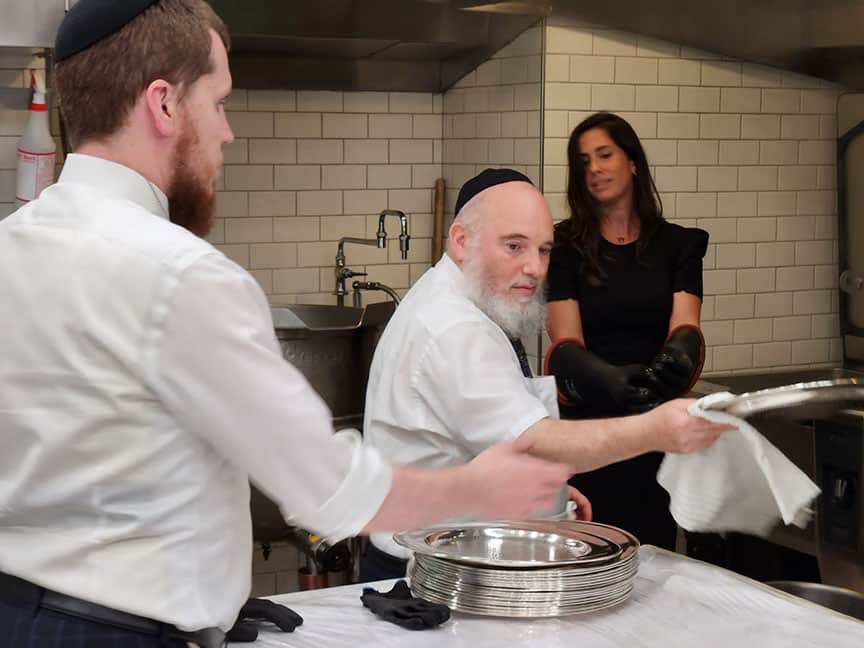
Greenspan recalled a moment at the Sukkot event while sitting next to Ambassador Mercan. She noticed that Mercan had written down “chag sameach.”
“He really just put in the effort,” Greenspan said. “He wanted to make sure that he was pronouncing it right when he was wishing everyone ‘chag sameach.’”
Historic, first-ever Sukkot celebration at Blair House @WhiteHouse.
Thrilled to celebrate the Jewish holiday of Sukkot, a festival of joy, with Ambassadors and diplomats from the Middle East and South & Central Asia, together with @SecondGentleman, @IRF_Ambassador, @US_Protocol pic.twitter.com/r7fpwxfCQ6
— Special Envoy Deborah Lipstadt (@StateSEAS) October 12, 2022
The Jewish firsts continued through the end of the year. On the first night of Hanukkah in December, President Biden and First Lady Jill Biden unveiled and lit the first ever permanent White House menorah.
As we mark the first night of Hanukkah, we celebrate with the first-ever White House menorah. It is a work of historic importance – and it’s also a work of love. pic.twitter.com/EipMFCjsSR
— The White House (@WhiteHouse) December 19, 2022
Intentionally or not, representing the Jewish community in the White House is something Greenspan seems to have been preparing for since she was a kid.
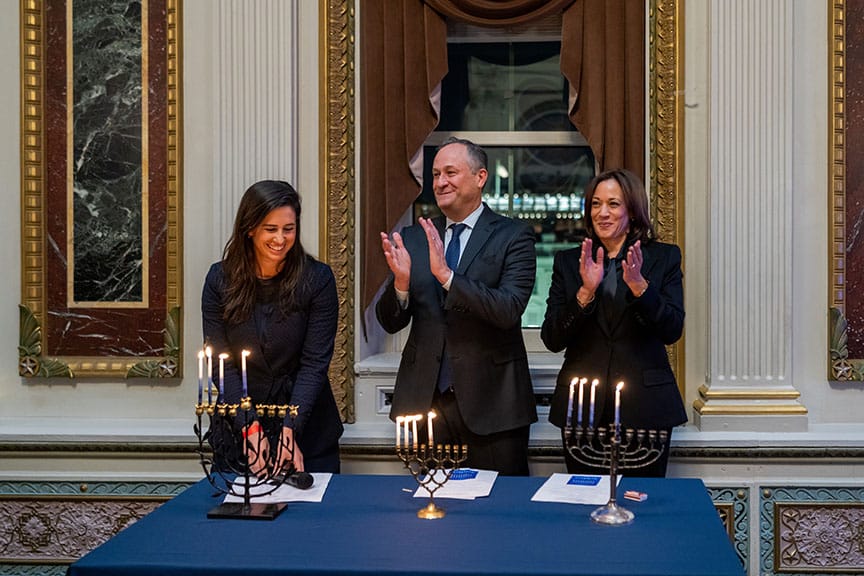
The 32-year-old Greenspan grew up in Miami Beach, and found inspiration from her Zaidie Charles (born Chaskiel Grynszpan). Everyone in Charles’ family perished in the Holocaust, yet he survived three concentration camps before being liberated at Buchenwald. He “worked with the Bricha transporting Jews to Palestine helping with the establishment of the State of Israel” according to his obituary (he passed away in 2007). His granddaughter Shelley grew up sharing his immense love of Judaism.
“I was surrounded by other very proud Jews in my community,” Greenspan said. “I went to a reform temple, a conservative camp and an Orthodox K-12 Day school.” After high school, Greenspan did a gap year in Israel and then continued her studies at the University of Florida (UF) in Gainesville.
“I was really active in pro-Israel politics on campus, student government and Hillel,” Greenspan said. “I think the more I leaned into my Jewish identity, the more I also fell in love with the work of public service. I think they’re both very intertwined. And I think that’s kind of how I ended up here because it just became so natural to do this work.”
While in college in Gainesville, an event hosted by the campus Hillel put Greenspan on a trajectory to where she is today. It was during her freshman year in 2010, as a member of the UF student government that Greenspan was asked to speak at an event honoring Representative Debbie Wasserman Schultz (D-Fla.). It was the first time that Greenspan ever met a member of Congress. Wasserman Schultz, currently serving her tenth term on Capitol Hill, was also involved in UF student government before graduating in 1988. Within a matter of weeks, Greenspan was interning at Wasserman Schultz’s DC office on the first floor of the Cannon House Office Building.
“I really connected with what she was saying, and we really clicked,” Greenspan said. “I was just hooked ever since that experience. You never know how something as simple as an internship can really change the trajectory of your life, but in this case it very much did.”
“You never know how something as simple as an internship can really change the trajectory of your life, but in this case it very much did.”
In DC, while still in college, Greenspan interned at NBC News and also at the White House during the Obama administration. After graduating from UF, she moved back to DC and worked at AIPAC for three years, covering the House Foreign Affairs and Senate Foreign Relations committees. She would later work on Secretary Hillary Clinton’s presidential campaign, also doing global policy work for Amazon and working at the U.S. State Department. Just prior to taking on the White House Jewish Liaison role in 2022, Greenspan had been working at the National Security Council as Policy Advisor for Partnerships and Global Engagement.
“I was working at the State Department and I was actually offered a position to join the National Security Council’s Partnerships and Global Engagement Directorate,” Greenspan said. “So for about a few weeks before being appointed, I was serving in the White House in the National Security Council (NSC). And I still am, I’m dual-headed. So I have two different roles and there is a lot of overlap in them when it comes to foreign policy.”
Seeing that there’s a great interest amongst the Jewish community when it comes to Israel, Greenspan’s role with the NSC has come in handy, helping her set up special briefings for members of the Jewish community on the U.S.-Israel relationship.
When President Biden went to Israel in July 2022, right before Greenspan started her new role, the JLOTUS office was tasked with keeping the Jewish community up to date on the trip — Biden’s tenth visit to the Jewish State.
“We had a roundtable with Jewish leaders from the community to discuss the upcoming trip,” Greenspan said. “We had a briefing after the trip, and that obviously is a big part of what the National Security Council does when it comes to foreign policy.”
“[President Biden] reaffirmed the unbreakable bond and commitment to the Israeli government on our shared interests and shared values,” Greenspan said of Biden’s visit.
On the topic of the Abraham Accords, Greenspan said that “we of course support broadening and deepening Arab-Israeli ties,” and that “this administration is committed to advancing and expanding upon these agreements between Israel and Arab and Muslim-majority countries to enhance regional security, prosperity and peace. The U.S. looks forward to helping strengthen and deepening these partnerships in the years to come. And I think something as simple as the Sukkot celebration is just a small example of that. But we really are committed to advancing these agreements.”
When asked about what the administration is doing on combating antisemitism, Greenspan said, “Regardless of all the progress that American Jews have made in so many domains in this country, it doesn’t change the sad reality that antisemitism is on the rise. President Biden and the entire administration is committed to standing up to antisemitism wherever it exists. Both the President and the Vice President know that an attack on the Jewish community is a strike against the soul of the nation and the values that we stand for.”
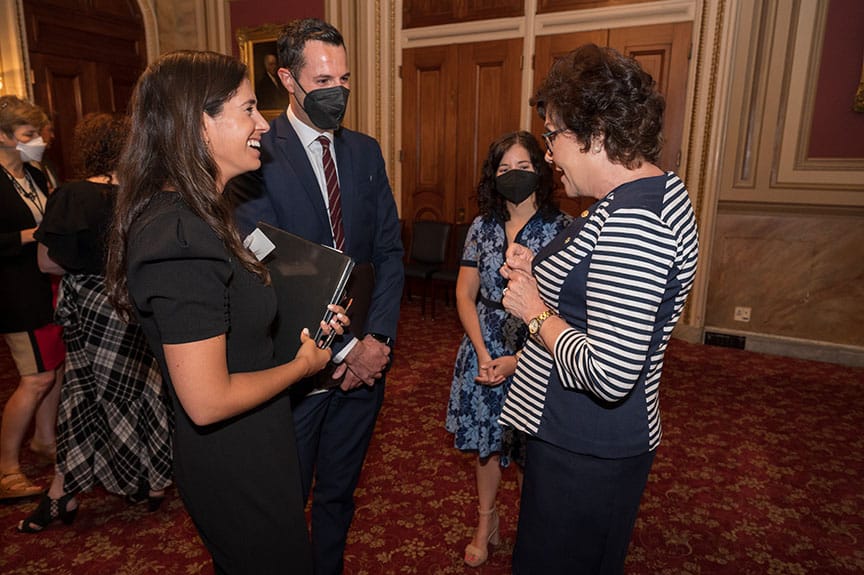
Greenspan works with Ambassador Lipstadt’s office on a regular basis on combating antisemitism and ensuring safety. The administration helped secure the largest increase in funding for physical safety of nonprofits ($90 billion in security funding for the Department of Homeland Security’s Nonprofit Security Grant Program) which include synagogues and JCCs. They also launched the first National Strategy for Countering Domestic Terrorism, a first-of-its kind White House initiative on combating hate-motivated violence. The initiative, released in June 2021, specifically mentions combating antisemitism.
For International Holocaust Remembrance Day, Greenspan traveled last week to Poland with Ambassador Lipstadt and second gentleman Emhoff to represent the United States on a tour of Auschwitz-Birkenau State Memorial and Museum. The solemn day commemorates the liberation of Auschwitz on January 27, 1945.
“From the moment you walk under the “Arbeit Macht Frei” gate you are surrounded by physical remnants of hatred and suffering,” Greenspan said of the experience. “The vastness of the complex epitomizes the enormity of the evil that took place.”
Later in the day, Emhoff led a candle-lighting ceremony at the Auschwitz Museum’s International Monument to the Victims of Fascism. By his side were Ambassador Lipstadt, Special Envoy for Holocaust Issues at the U.S. Department of State Ellen Germain and Ambassador Mark Brzezinski, U.S. Ambassador to Poland.
“The focus of our trip to Poland and Germany is to advance the Biden-Harris Administration’s efforts to combat antisemitism around the world and support Holocaust remembrance,” Greenspan said.
The @SecondGentleman leads in a candle-lighting ceremony at @AuschwitzMuseum’s International Monument to the Victims of Fascism. He’s joined by @StateSEAS, @StateSEHI, and @USAmbPoland.
Today marks 78 years since Auschwitz was liberated. pic.twitter.com/H6Jdexq2c1
— Shelley Greenspan (@ShelleyGspan) January 27, 2023
Both the Second Gentleman and Greenspan had an opportunity to connect with the homes of their ancestors. Emhoff visited Gorlice, Poland, where his great-grandmother lived before fleeing to the U.S.
Greenspan visited her grandmother’s old apartment in Krakow. Her grandmother’s mother, sister and brother were all sent to the Krakow Ghetto and murdered.
“You can see the traces of the mezuzah that was once affixed on the doorpost,” Greenspan wrote in a Twitter post.
I had the opportunity to visit my Bubbie’s old apartment in Krakow. Her mother, sister, and brother were all sent to the Krakow Ghetto and later killed.
You can see the traces of the mezuzah that was once affixed on the doorpost. pic.twitter.com/cZ6dLvTQRa
— Shelley Greenspan (@ShelleyGspan) January 29, 2023
After Shabbat, Greenspan and the delegation traveled to Germany for talks with special envoys from around the world to discuss rising antisemitism and to share best practices.
“There is a chilling interconnection between antisemitism and other forms of hate. Let’s be clear: A threat to any community is a threat to all communities,” Emhoff said, while leading an interfaith roundtable in Berlin with Ambassador Lipstadt and U.S. Ambassador at Large Rashad Hussain, who is tasked with advancing religious freedom worldwide.
During Greenspan’s official visit to Poland and Germany, a dark cloud hovered: seven Israelis were murdered Friday evening outside of a synagogue in East Jerusalem by a Palestinian terrorist.
President Biden spoke with Prime Minister Benjamin Netanyahu that night, condemning the attack and stressing the “iron-clad U.S. commitment to Israel’s security,” while calling on his team to remain in constant touch with their Israeli counterparts.
As Greenspan continues to advise the President and represent the Jewish-American community, she is reminded of the overarching goals of the administration.
“Democracy doesn’t happen by accident. We have to renew it in each generation, l’dor v’dor. That’s definitely an area for bipartisan support to say the least.”
“President Biden says the work of democracy is the work of this generation and that there’s a role for every American,” Greenspan said. “That includes every single American Jew. And democracy doesn’t happen by accident. We have to renew it in each generation, l’dor v’dor. That’s definitely an area for bipartisan support to say the least. As American Jews — Republican, Democratic — it doesn’t really matter. We all have an obligation and an opportunity to address these challenges of our time. And it’s only strengthened when we work together.”
The political bonds between the U.S. and Israel are sure to be tested with the rise of a new government in Israel that is pushing hard-right policies that have alarmed Jews both here and in Israel. But Greenspan remains upbeat, an outlook that is essential to excelling in her position.
“One of President Biden’s favorite quotes is from the Talmud: ‘It’s not required that you complete the work, but neither may you refrain from it,’” Greenspan said. “And in my few months of serving as the Jewish Liaison, let me tell you that Jews do not refrain from the work, I see it on a daily basis. They’re living their values in action through robust local philanthropy, social justice organizations, and the federation system. It’s a true privilege and an honor to be serving in this role.”









